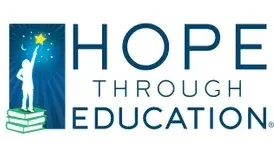The after-effects of the pandemic will be multi-faceted and far-reaching. In Parts One and Two of this discussion, I analyzed changes I expect in the workplace and in the delivery of healthcare services.
And I wager you’ll see new approaches in the following areas as well.
Virtual Learning
Here’s one of the gems of the virtual world.
Higher education in the technology area and adult education have been using distance-learning methods for years. So these two areas have been able to expand their offerings to deal with the needs of their markets.
The challenges here are for those institutions – in many cases those that focus on non-technology curricula – to expand the breadth of their teaching modalities from an in-person focus to virtual learning. Some educational institutions will pivot effectively, and sadly, some will not.
As a trustee of Stevens Institute of Technology in Hoboken, New Jersey, I’m very aware of the many challenges facing higher education in the current environment. I “attended” the April 2020 “virtual” meeting of the Association of Governing Boards and found much to enrich my understanding of how Virtual Learning is affecting institutions.
Institutions that have been forced to close due to COVID-19 have had to issue pro-rated refunds of room, board and in some cases, partial tuition. The financial implications are great. While some institutions have hefty endowments that can withstand the crisis, others will not be so fortunate.
The question for the survivors will be how much of the “current” college experience will be fulfilled by Virtual Learning and what does that look like? Will families who already sacrifice much to send students to institutions of higher learning still be willing to pay hefty price tags for virtual learning? Will students be willing to attend far away universities when so much learning is available online? The change is coming and it can’t be avoided.
The challenge for higher education is two-fold. How will they encourage students in the short-term to continue with coursework virtually? Will colleges and universities find ways to continue to make the on-campus experience so worthwhile to a student’s education that he or she will want to spend at least some time on the physical campus?
To survive and thrive in the new environment, colleges and universities will need to provide compelling answers to those questions.
For K through 12, delivery of education will continue to look very different in the short term and school districts will need to quickly develop creative and engaging ways to teach students effectively.
Public education has not had the institutional support and penetration of the market for Virtual Learning that has been the case for higher education. It is true that innovative entrepreneurs (e.g. the Kahn Academies) have established popular websites offering a great variety of courses. And knowledgeable parents have used these means to supplement their children’s education through or in lieu of traditional channels.
The question is how the K through 12 bureaucracy will react. Here again, a conservative institutional structure can see Virtual Learning as a threat. Nonetheless, the demand from parents and students for more innovation – and the increase in course availability – can go a long way toward facilitating change, at least among forward-thinking school districts.
The personal learning and personal improvement area will continue to grow and develop. It has embraced online communication, interaction, and instruction for quite some time. I see an increase in the demand for courses that use virtual tools to enrich the learning experience for users. Producers of online learning programs will likely develop even more effective and creative means of delivery.
Disruption creates both risk and opportunity and those institutions that adapt most readily will be the ones to succeed and prosper.
Virtual Worship
There is nothing so personal to believers than their relationship with their faiths and the accompanying community connection.
For years, religious and ethical organizations have used television to reach out to the faithful. But many worshippers preferred to attend F2F services. With the recent lockdown and social distancing that has not been possible in most instances.
The various religions have all adapted by increasing their online presence. Houses of worship are streaming services and religious school classes, increasing email, and utilizing social media to engage congregants. Those that are able to effectively expand their reach may find ways to both stem attrition and attract younger congregants to sustain themselves into the future.
I participated as well. During the lockdown, I enjoyed “attending” Mass several times at St. Patrick Cathedral in New York City. It was inspiring to listen to Timothy Cardinal Dolan’s reminders about the essence of reflecting our faith in action to help our fellow man. It was a change from attending my local parish in Florida, and it was helpful in keeping me focused on the larger questions in life.
I assume I’m not the only person who found it helpful during this difficult time.







